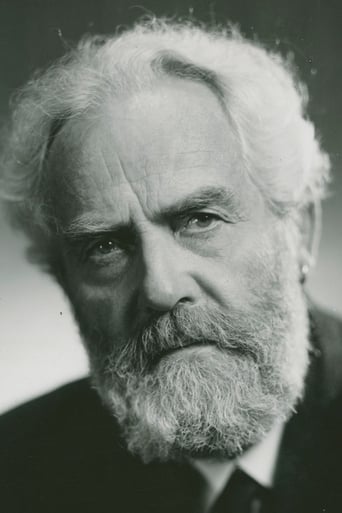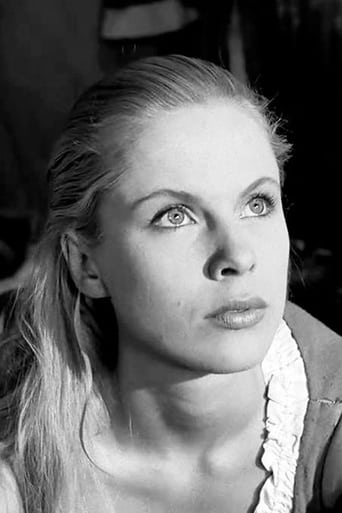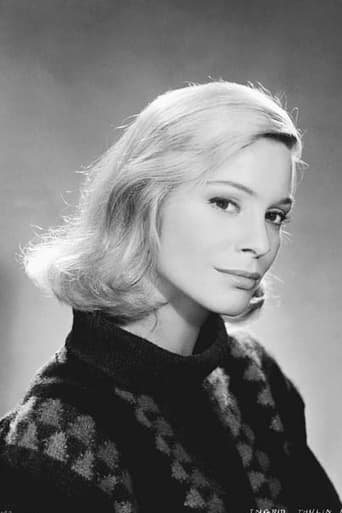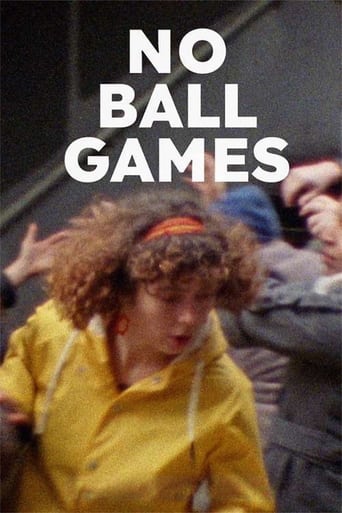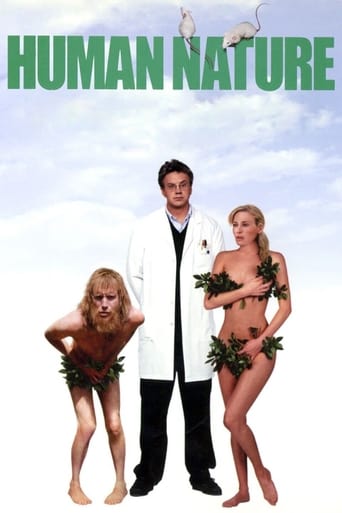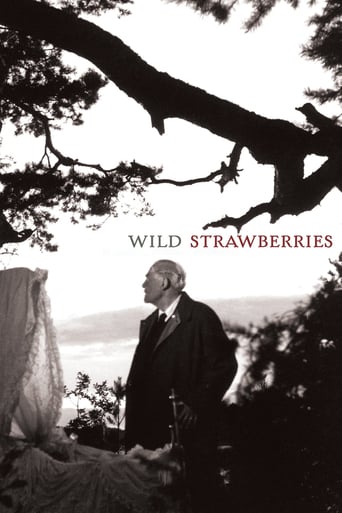
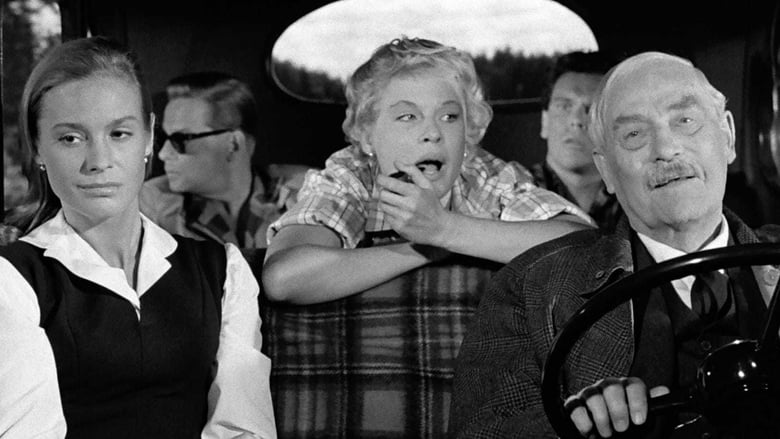
Wild Strawberries (1957)
Crotchety retired doctor Isak Borg travels from Stockholm to Lund, Sweden, with his pregnant and unhappy daughter-in-law, Marianne, in order to receive an honorary degree from his alma mater. Along the way, they encounter a series of hitchhikers, each of whom causes the elderly doctor to muse upon the pleasures and failures of his own life. These include the vivacious young Sara, a dead ringer for the doctor's own first love.
Watch Trailer
Cast
Similar titles

Reviews
Just perfect...
Don't listen to the negative reviews
Unshakable, witty and deeply felt, the film will be paying emotional dividends for a long, long time.
This movie feels like it was made purely to piss off people who want good shows
If you don't adore this film, you should (finally) go on and try to read a book ( as small as it is) from its first word to its last
Wild Strawberries is at once a road trip film, and a trip down memory lane. 78 year old Isak journeys through idyllic forestry on the way to a ceremony that celebrates his life achievements as a doctor. He travels with his daughter-in-law, picks up a young trio hitching their way to Italy, and briefly, an arguing couple who they were involved in a car accident with. He recalls past memories of his younger days, and has bad dreams. It plays out less like narrative fiction than a hodge-podge diary entry, things occurring spontaneously. This means no one mood is ever built upon in layers, rather it ebbs and flows almost without structure. There are themes of death hanging over the film, unanswered questions regarding God and science, bickering and co-operation between men and women, the contrast of expression between young and old, and an appreciation for the beauty of life and the honour of career based achievements, contrasted with incidents recalling great sadness, and a failure in personal relationships - from lost loves, cheating partners, and forgotten family. Although Isak appears quite endearing and the film takes a sympathetic viewpoint, he is nonetheless faulted for his past cold aloofness which caused the women to cheat, yet the women and the partners they took up with are also faulted for their lack of principal. And when Isak attempts a greater warmth towards his maid in the final scene, she rebuffs him, long set in her own manner. In this fashion Bergman veers away from giving cliché or easy answers, and manages to capture the complexities of human relationships.Aside from hints that Isak's remaining days are limited, there is not a great deal of tension in the film, meaning it is more poem than a blockbuster. Yet it manages to maintain interest due to the emotional sway, and all encompassing themes - which are ever present, yet never preached. It is a quest for meaning, where the filmmakers wish not to give the answer, but capture the journey - for which a road trip proves a suitable metaphoric vehicle. The freewheeling nature of it helps prevent the weighty themes from becoming too morbid, and feels just as though they would on any road trip spent staring out the window. Vivid and distant at the same time.
Everyone must have a film they have seen, a bit like 'the red balloon', that often comes back to them in a dream like quality. This is certainly the case here, with images from the film returning to mind alongside ordinary nostalgia, only, somehow, sharper in focus. How it manages this is completely unknown. Some form of alchemy is in play here. I can only recommend that, and am envious of, the first time viewer.I approached this movie, purely as someone who wanted to know what the Bergman fuss was all about. Little knowing the effect it would have on my psyche and world view.
I remember when a see it first time. the images. the impressions. the feeling than it is a total film. because its virtue is a delicate manner to reflect the feelings of an age and the build of hope. because Bergman does the best choice for the lead role as homage and as reflection of a great career. because the image of empty clock is the most powerful metaphor for define the time and the run against it. because it is a film about each of its viewers. the regrets and the old age. the memories as way to survive and the fear of death. the strange links with the others. the sense of life and the need to have second chances. a masterpiece in a special form. because it has the gentle grace to be not only optimistic but wise support for reflection.
